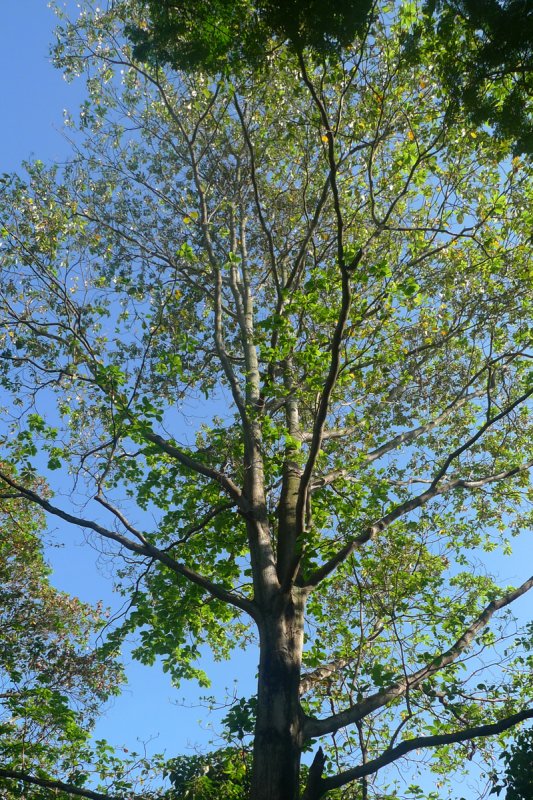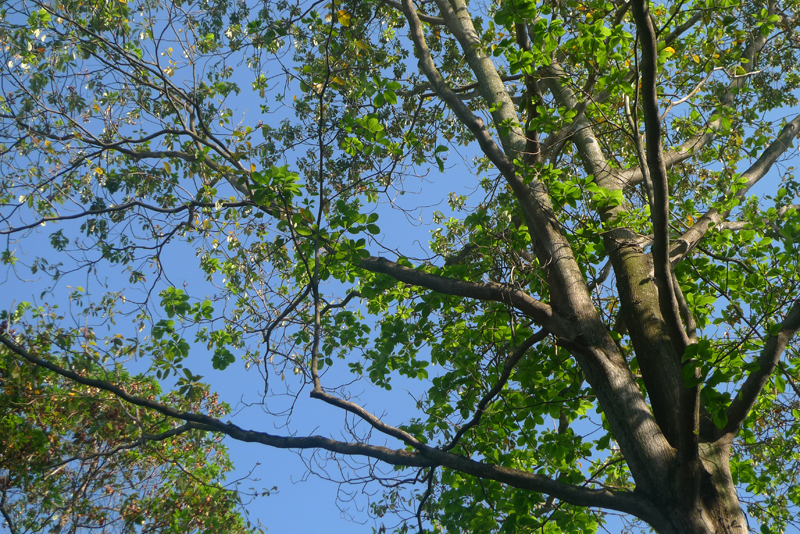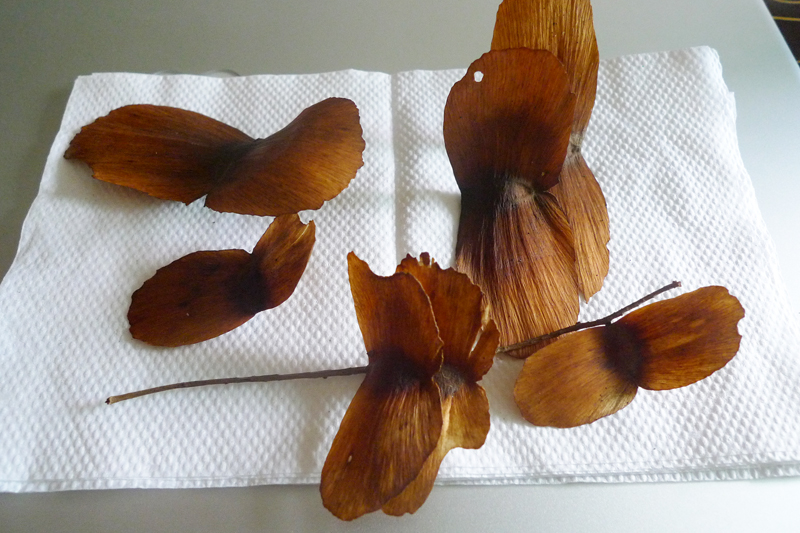Today I took the same route home again. It was a sunny morning and I decided I should take a look at the tree(s) that disperse these seeds. I am totally clueless when it comes to identifying trees. Unless the tree is very commonly found along roadsides and I have learnt it in school.
 |
| Tall tree |
My good friend, google, did not provide much help either. Or maybe my search keywords were not specific enough? hmm...
 |
| Attempt at capturing the leaves of the tree |
 |
| Numerous seeds |
View Larger Map
It is still a mystery to me.
If you happened to know what tree this is, do place your comment.

Your photos (seeds, tree) show Terminalia calamansanai (Blanco) Rolfe -- commonly known as Philippine Almond, Pokok Jelawai Mentalun or Kedah Tree.
ReplyDeleteThis semi-deciduous tree is native to Indochina, Philippines, Peninsular Malaysia, Sulawesi, Papua New Guinea & south Pacific (eg. Solomon Islands). In Malaysia, the tree occurs most frequently in Kedah & Langkawi.
In older literature, the (now-rejected) orthographic variant is sometimes seen: Terminalia calamansanay Rolfe -- after the trade name for its timber. Note though that Calamansanay is used to refer to the wood of at least 3 different tree species (not necessarily from the Terminalia genus).
References for Terminalia calamansanai:
* Plant Observatory SG: Photos
* Vietnam Forest Creatures: Photos & Info (English translation)
* 山羊百科: Photos
* FAO Ecocrop: Info & Photo
* Rimbun Dahan (Combretaceae): Info & Photo
* Flowers of India: Info & Photos
* Herbarium Specimen Sheets: Flora of Philippines, Royal Kew Gardens
There are a few Terminalia calamansanai trees at the carpark area near the entrance to Jacob Ballas Children's Garden. But the signage there wrongly indicates the plant ID as Terminalia ivorensis A. Chev. (Ivory Coast Almond, Black Afara).
Not sure if the said signage has been corrected, but this may explain the mystery why some T. calamansanai photos as taken in S'pore have been erroneously labelled as T. ivorensis by unsuspecting individuals. For instance, the photos on this page actually show T. calamansanai.
The foliage & fruits of the real T. ivorensis are quite different in morphology. For instance:
* T. calamansanai fruits: 2-winged, folded V-shaped
* T. ivorensis fruits: Elongated; central oval "eye" (ie. seed) fringed by continuous wing -- (Image1, Image2, Image3)
More info about Terminalia ivorensis:
* Plant Altas of Liberia: Species Profile
* Protabase: Species Profile
* AgroForestryTree Database: Species Description
Wow! Thank you, Pat, for the comprehensive ID of the seed.
Delete